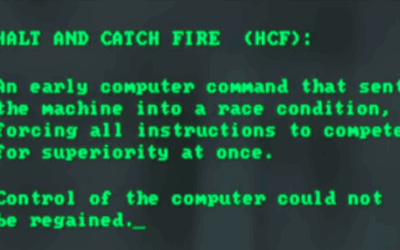The worn pages crackle under trembling fingers. Found tucked between dusty volumes in a government surplus sale box, the document bears no official seal, no classification stamps: just densely typed pages speaking of economic shock testing, biological warfare through data collection, and the mathematics of human control. "Technical Manual TM-SW7905.1," it claims, dated May 1979, allegedly a training document for social engineers. The finder's heart races: Is this real? A forgotten piece of the puzzle explaining...
Cults and Cult Psychology: Understanding and Healing from High-Control Groups

Specialized Therapeutic Support for Cult Recovery and Family Healing in Birmingham
Welcome to Taproot Therapy Collective’s specialized focus on understanding cult psychology, recovering from high-control group involvement, and supporting families affected by cultic relationships. As Birmingham’s leading integrative therapy practice, we recognize that involvement with manipulative groups creates complex psychological trauma requiring specialized therapeutic approaches that address mind control tactics, identity reconstruction, and family system healing.
Understanding Cult Psychology and High-Control Groups
Our Cults and Cult Psychology blog category examines the psychological dynamics of authoritarian groups, coercive persuasion techniques, and the therapeutic approaches most effective for recovery from cultic involvement. We explore how understanding social psychology, influence techniques, and trauma responses helps both prevention and recovery while supporting individuals and families navigating the complex challenges of cult involvement and exit.
This approach builds on the comprehensive trauma treatment detailed on our main services page, where specialized modalities including EMDR, Brainspotting, and trauma-informed therapy provide essential tools for addressing the complex psychological impacts of coercive control, spiritual abuse, and identity disruption that characterize harmful group involvement.
Psychological Dynamics of Cult Recruitment and Control
Recruitment Vulnerabilities and Life Transitions examines how legitimate psychological needs including belonging, purpose, meaning, and identity development can be exploited by manipulative groups during vulnerable life periods. Understanding normal developmental processes, life transition stress, and social isolation helps identify both risk factors and protective strategies for cult involvement.
Research from Harvard Medical School and American Psychological Association demonstrates that anyone can become vulnerable to cult recruitment during periods of stress, transition, or isolation, challenging stereotypes about cult members while informing both prevention and treatment approaches.
Thought Reform and Mind Control Techniques explores how high-control groups systematically undermine critical thinking, emotional regulation, and autonomous decision-making through information control, emotional manipulation, social pressure, and spiritual coercion. Understanding Robert Jay Lifton’s criteria for thought reform and Margaret Singer’s work on coercive persuasion provides frameworks for recognizing and addressing psychological manipulation.
Identity Disruption and Pseudo-Identity Formation examines how cults systematically dismantle authentic identity while constructing dependent pseudo-identities that serve group interests rather than individual development. This process creates complex therapeutic challenges requiring specialized approaches to identity reconstruction and authentic self-discovery.
Trauma-Informed Approaches to Cult Recovery
Complex Trauma and PTSD from Cult Involvement addresses how prolonged exposure to manipulation, spiritual abuse, isolation, and identity control creates complex trauma symptoms including dissociation, emotional dysregulation, trust difficulties, and fragmented sense of self. Traditional PTSD treatment approaches require modification to address the specific psychological impacts of coercive control and spiritual manipulation.
EMDR and Somatic Approaches for Cult Trauma utilizes bilateral stimulation and body-based therapies to process traumatic memories, rebuild nervous system regulation, and restore healthy embodied awareness that cult involvement often disrupts. These approaches prove particularly valuable for addressing dissociation, hypervigilance, and somatic symptoms resulting from prolonged stress and manipulation.
Lifespan Integration Therapy offers specialized protocols for addressing developmental trauma and identity disruption that characterize cult involvement. This approach helps individuals reconnect with authentic self-experience while processing traumatic memories and rebuilding healthy identity integration.
Family Systems and Cult Involvement
Family Therapy for Cult-Affected Families addresses how cult involvement disrupts family relationships through loyalty conflicts, communication restrictions, financial exploitation, and forced separation. Family therapy approaches help restore healthy boundaries, rebuild trust, and navigate the complex challenges of supporting loved ones involved in high-control groups.
Supporting Families with Active Cult Members provides guidance for family members seeking to maintain relationships with loved ones currently involved in manipulative groups while protecting their own psychological wellbeing. This work requires delicate balance between support and enabling while understanding how families can inadvertently reinforce cult involvement through their responses.
Exit Counseling and Intervention Approaches examines ethical methods for helping individuals recognize manipulation and make informed decisions about group involvement. Professional intervention requires understanding cult psychology, family dynamics, and ethical boundaries while avoiding coercive approaches that mirror cult tactics.
Spiritual and Religious Abuse Recovery
Distinguishing Healthy Spirituality from Spiritual Abuse helps individuals and families understand the difference between authentic religious experience and exploitative spiritual manipulation. This work proves particularly important in Birmingham’s religious cultural context where spiritual authority is generally respected and trusted.
Religious Trauma Recovery addresses how spiritual abuse creates unique therapeutic challenges including damaged relationship with the divine, spiritual bypassing of psychological needs, shame around religious questioning, and difficulty distinguishing healthy spiritual community from manipulative religious groups.
Rebuilding Healthy Spiritual Connection supports individuals in rediscovering authentic spiritual experience after religious trauma while developing discernment skills for evaluating spiritual teachers, communities, and practices that honor rather than exploit spiritual seeking.
Birmingham Context and Cult Awareness
Living in Birmingham, Alabama, creates specific considerations for cult awareness and recovery given the region’s strong religious culture, community traditions, and social dynamics. Understanding how legitimate religious authority differs from exploitative spiritual manipulation helps individuals and families navigate religious communities safely while maintaining cultural connections.
Birmingham’s diverse religious landscape provides both resources and potential vulnerabilities regarding cult involvement. Strong community connections often provide protection against cult recruitment while religious openness may create vulnerabilities to spiritual manipulation requiring education and discernment.
The city’s educational institutions, including universities and seminaries, create environments where spiritual seeking and ideological exploration may be targeted by manipulative groups requiring campus-based prevention education and support resources for students and families.
Research-Based Understanding of Cult Psychology
Contemporary research from International Cultic Studies Association, Freedom of Mind Resource Center, and academic institutions provides evidence-based understanding of cult psychology, recovery processes, and effective therapeutic interventions that inform professional practice and family support.
Studies on social influence, cognitive dissonance, trauma bonding, and social psychology provide scientific frameworks for understanding cult involvement and recovery that support both therapeutic intervention and prevention education while challenging misconceptions about cult members and their families.
Neuroscience research on social influence, identity formation, and trauma responses provides biological understanding of how cult involvement affects brain function, decision-making capacity, and psychological development, informing therapeutic approaches and supporting family understanding of cult impact.
Prevention and Education Approaches
Critical Thinking and Influence Resistance Education provides practical skills for recognizing manipulation tactics, evaluating group dynamics, and maintaining autonomy in social situations. Education about social psychology, influence techniques, and healthy group characteristics supports both prevention and recovery goals.
Healthy Community Characteristics helps individuals and families understand what distinguishes healthy spiritual communities, social groups, and organizations from potentially exploitative environments. This education supports both prevention and post-cult community selection.
Warning Signs and Red Flags education helps individuals, families, and communities recognize early indicators of potentially harmful group involvement while maintaining respect for legitimate religious and social diversity.
Professional Training and Consultation
Therapist Training in Cult Recovery addresses the specialized skills required for effective cult recovery therapy including understanding thought reform, working with complex trauma, family system dynamics, and spiritual abuse recovery. Professional training ensures that therapists can provide competent care for this specialized population.
Consultation and Professional Resources connects therapists with specialized expertise, research updates, and clinical resources for working effectively with cult-affected individuals and families while maintaining ethical boundaries and therapeutic effectiveness.
Community Education and Prevention Programs offer workshops, presentations, and educational resources for schools, religious communities, and social organizations seeking to understand cult psychology and develop prevention approaches that protect vulnerable individuals.
Integration with Evidence-Based Practice
Cult recovery therapy integrates specialized understanding with evidence-based approaches detailed in our psychology and research section. Trauma-informed care, cognitive-behavioral therapy, family systems approaches, and somatic therapies provide effective foundations for addressing the complex psychological impacts of cult involvement.
Understanding how cult involvement affects identity, relationships, and psychological functioning informs therapeutic approaches that address both trauma symptoms and developmental disruption while supporting authentic self-discovery and healthy relationship formation.
Connect with Our Cult Recovery Community
For deeper exploration of cult psychology and recovery resources, check out more on the Discover + Heal + Grow Taproot Therapy Collective blog and podcast where we feature experts in cult recovery, researchers in social influence, and individuals sharing their recovery experiences.
Subscribe to our YouTube channel for educational content on cult psychology and recovery approaches, listen to our podcast for expert interviews and recovery stories, follow us on Instagram for cult awareness education and recovery inspiration, connect on LinkedIn for professional resources on cult psychology and recovery therapy, find us on Google Maps for specialized cult recovery therapy services, and join our Reddit community for supportive discussions on cult recovery and family healing.
Featured Article Categories
Our Cults and Cult Psychology blog includes Understanding Cult Psychology examining recruitment tactics and control mechanisms, Trauma Recovery exploring therapeutic approaches for cult-related trauma, Family Systems addressing how cult involvement affects families and relationships, Spiritual Abuse Recovery supporting healing from religious manipulation, Prevention and Education providing tools for recognizing and avoiding manipulative groups, Professional Resources offering training and consultation for therapists, Research and Science covering current studies on social influence and recovery, and Personal Stories sharing experiences of recovery and healing while protecting privacy and safety.
Specialized Cult Recovery Programs
We offer monthly Cult Recovery Support Groups for individuals healing from high-control group involvement, quarterly Family Education Workshops for families affected by cult involvement, specialized Cult Recovery Therapy using trauma-informed approaches specifically adapted for cult-related trauma, and Professional Consultation services for therapists and organizations working with cult-affected individuals and families.
Start Your Recovery Journey Today
Recovery from cult involvement requires specialized understanding, compassionate support, and evidence-based therapeutic approaches that address the complex psychological impacts of coercive control and manipulation. Our Birmingham-based team at Taproot Therapy Collective provides specialized cult recovery therapy that honors both individual healing needs and family system restoration.
Contact Taproot Therapy Collective: 📍 2025 Shady Crest Dr. Suite 203, Hoover, AL 35216
📞 (205) 598-6471
🌐 www.GetTherapyBirmingham.com
🎧 Podcast: gettherapybirmingham.podbean.com
We provide specialized therapeutic support for cult recovery that addresses complex trauma, identity reconstruction, and family healing with compassion, expertise, and respect for your courage in seeking freedom and authentic self-expression.
Discover + Heal + Grow with Taproot Therapy Collective – Birmingham’s specialized resource for cult recovery therapy and family healing.
Is My Friend or Business Partner a Con Artist?
Cults and High Control Group Psychology, Executive and Physician Burnout, Psychology, Psychology Topics and Articles, Recovering from Abuse
Understanding the Psychology Behind Deception and Emotional Manipulation Have you ever wondered if your business partner is a con artist? Perhaps you've noticed a pattern where their stories don't quite add up, where their accomplishments seem to exist only in conversation, or where every failure has an elaborate explanation that somehow positions them as the victim. Maybe you've watched them charm their way through situations with nothing but words, leaving you with an uneasy feeling that something fundamental...
How Childhood Religious Trauma can go Unnoticed
Cults and High Control Group Psychology, Psychology Topics and Articles, Recovering from Abuse
How Religious Trauma Shapes Your Adult Relationships and Self-Perception Religious trauma is a deeply wounding experience that can have far-reaching effects on an individual's emotional, psychological, and spiritual well-being. It is a complex phenomenon that often occurs in the context of authoritarian, fear-based religious environments that prioritize rigid doctrine over individual autonomy and critical thinking. At its core, religious trauma represents a profound betrayal of trust. When a religious institution...
The Cult Psychology of The Satanic Panic
Cults and High Control Group Psychology, Psychology of Conspiracy Theories, Recovering from Abuse, Therapeutic Approaches and Techniques for Therapists
Understanding the Appeal of a Moral Panic What was the Satanic Panic The 1970s and 1980s saw a wave of moral hysteria known as the "Satanic Panic," characterized by widespread fear of alleged Satanic cult activity. Despite a lack of evidence, many Americans became convinced that a vast, underground network of Satanists was responsible for everything from child abuse to human sacrifice. This essay will examine the social and psychological factors that made people vulnerable to these conspiracy theories, including...
The Cult Psychology of Jonestown
Cults and High Control Group Psychology, Psychology of Conspiracy Theories, Recovering from Abuse
What was the Jonestown Cult? The Peoples Temple, led by Jim Jones, was a notorious cult that ended in the tragic mass murder-suicide of over 900 of its members in Jonestown, Guyana in 1978. While its shocking end makes it stand out, many of the manipulative tactics and situational factors that allowed Jones to exert such control were not unique. As the saying goes, in most cults, little of what is good is original, and little of what is original is good. By examining the Peoples Temple and Jonestown, we can gain...
The Cult Psychology of The Branch Davidians
Cults and High Control Group Psychology, Psychology of Conspiracy Theories, Recovering from Abuse
The Tragedy of the Branch Davidians: Abuse, Control, and the Perils of Charismatic Leadership Who was David Koresh? The 1993 Waco siege that ended in the fiery deaths of David Koresh and over 70 of his Branch Davidian followers shocked the world. But upon closer examination, the tactics Koresh used to ensnare and control his followers were not entirely unique. While the Branch Davidians took them to deadly extremes, elements of Koresh's playbook can be found in other cults as well as abusive interpersonal...
The Religious Impulse: How Trauma and Misappropriated Intuition Fuel Conspiracy Theories
Cults and High Control Group Psychology, Depth Psychology Approaches and Techniques, Psychology of Buildings and Architecture, Psychology of Conspiracy Theories, Psychology of Mystics, Gurus, and Spiritual Philosophers
The Divided Mind and the Quest for Meaning Part 1 > Part 2 < Part 3 The Misappropriation of Metaphor: How Trauma and Bias Can Distort Our Understanding of Reality Main Ideas and Key Points: The human psyche is shaped by millions of years of evolutionary history, and the conflict between the rational, conscious mind and the deeper, instinctual layers of being is a key challenge of the human condition. The evolutionary development of the human brain has led to the emergence of the "reptilian"...







